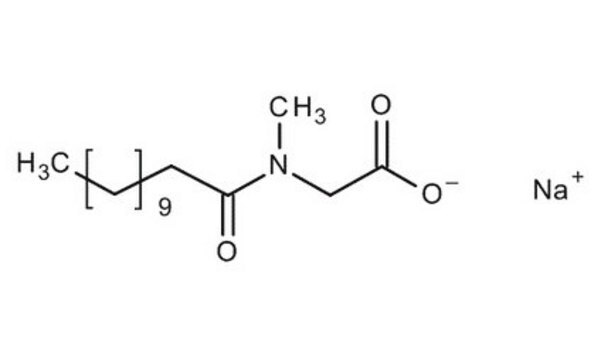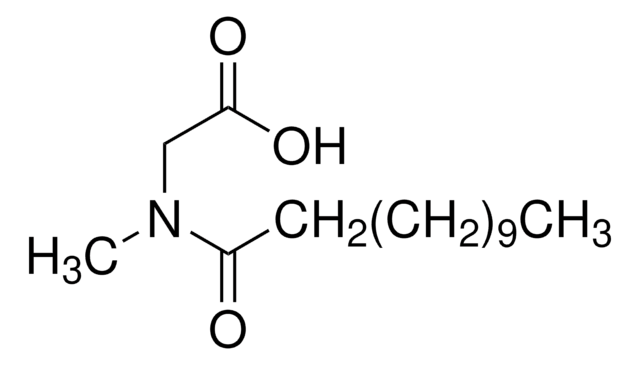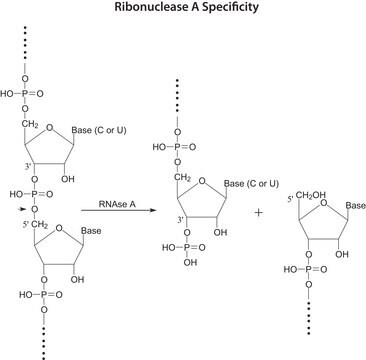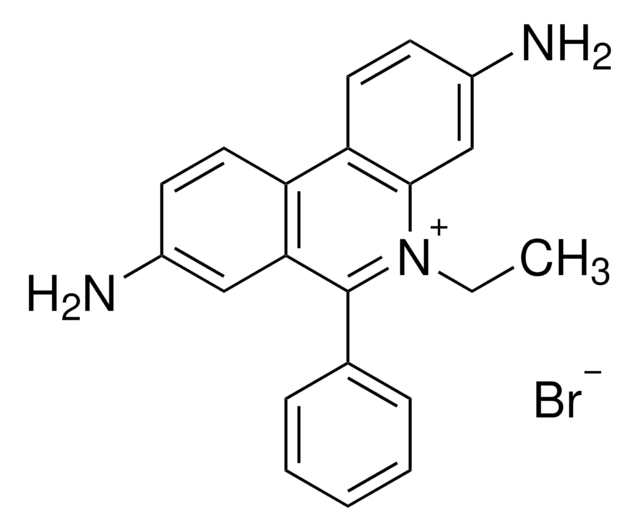61745
N-Lauroilsarcosina sodium salt
≥97.0% (HPLC)
Sinónimos:
N-Dodecanoil-N-metilglicina sodium salt, Sarkosyl NL
About This Item
Productos recomendados
descripción
anionic
Análisis
≥97.0% (HPLC)
formulario
powder
mol peso
micellar avg mol wt 600
número de agregación
2
técnicas
protein expression: suitable
protein purification: suitable
protein quantification: suitable
impurezas
≤7% water
CMC
14.6 mM (20-25°C)
solubilidad
H2O: very soluble 293 g/L at 20 °C
cadena SMILES
[Na+].CCCCCCCCCCCC(=O)N(C)CC([O-])=O
InChI
1S/C15H29NO3.Na/c1-3-4-5-6-7-8-9-10-11-12-14(17)16(2)13-15(18)19;/h3-13H2,1-2H3,(H,18,19);/q;+1/p-1
Clave InChI
KSAVQLQVUXSOCR-UHFFFAOYSA-M
¿Está buscando productos similares? Visita Guía de comparación de productos
Descripción general
Aplicación
Otras notas
Palabra de señalización
Danger
Frases de peligro
Consejos de prudencia
Clasificaciones de peligro
Acute Tox. 2 Inhalation - Eye Dam. 1 - Skin Irrit. 2
Código de clase de almacenamiento
6.1A - Combustible acute toxic Cat. 1 and 2 / very toxic hazardous materials
Clase de riesgo para el agua (WGK)
WGK 1
Punto de inflamabilidad (°F)
512.6 °F - closed cup
Punto de inflamabilidad (°C)
267 °C - closed cup
Equipo de protección personal
Eyeshields, Gloves, type N95 (US)
Elija entre una de las versiones más recientes:
¿Ya tiene este producto?
Encuentre la documentación para los productos que ha comprado recientemente en la Biblioteca de documentos.
Los clientes también vieron
Nuestro equipo de científicos tiene experiencia en todas las áreas de investigación: Ciencias de la vida, Ciencia de los materiales, Síntesis química, Cromatografía, Analítica y muchas otras.
Póngase en contacto con el Servicio técnico










